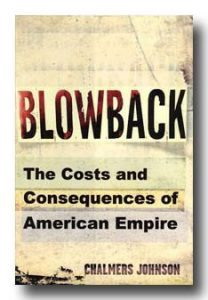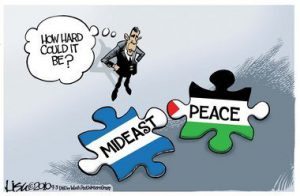Through Iron Sights: The Unintended Consequences of Intervention
This week an additional 400 American military personnel, mostly in special forces, went overseas to Syria in an effort to wrest control of Raqqa from ISIS. Looking at how much of the Middle East currently lies in the grip of the Islamic State, there is cause for grave concern as its expansion continues. Uniting disenfranchised Sunnis from the borders of Iran to the Mediterranean, ISIS has created a movement of young, radical militants that stands poised to now engulf Syria.
This has influenced the rhetoric of Democrats and Republicans alike and an aggressive response to ISIS was so central to the Trump campaign that stopping “radical Islamic terror” often felt like a slogan. Despite advocating military action to bring peace to the Middle East, Trump initially gained some praise by stating his opposition to the Iraq War in several presidential debates. Beyond determining Trump’s own consistency, this establishes a clear dissonance in American foreign policy: in demanding an end to ISIS there are few suggesting that the existence of ISIS is a direct result of our own actions. Instead of becoming the liberators of Iraq against a tyrant, America is the occupying power threatening the Muslim way of life. How, then, did we end up with an enemy able to use the cry for freedom against us?
ISIS began with the union of Jordanian militant Abu Masab al-Zarqawi and Al-Qaeda, who were also able to enlist former members of Saddam Hussein’s Ba’ath Party in creating the Islamic State. ISIS was created for a variety of reasons, but the group specifically cites the 2003 American invasion of Iraq and the subsequent regime change as the initial cause of their revolution. Instituting regime change in Iraq lead to the ousting of most Sunni Muslims from politics and the military. The U.S. backed, Shia Prime Minister Nouri al-Maliki saw a chance to silence his political enemies, which resulted in popular Sunni revolt against the apparent empowerment of the Shi’ite Muslims.
The tacit U.S. support of Sunni marginalization has become the central rallying cry against what the Islamic radicals see as American imperialism. The image of America that was introduced to Iraqi Sunnies consisted mainly of guns, bombs, and soldiers, rather than McDonalds, apple pie, and rock n’ roll. This set a horrible precedent for how Sunnis view America and, by extension, Western democracy. Our response until this point has involved fighting a shadow war against Islamic terrorists by eli minating their leadership. While this tactically makes sense, as increased incarceration has not stopped the illegal drug trade, if there are outside forces maintaining a power structure, then it will continue to expand.
minating their leadership. While this tactically makes sense, as increased incarceration has not stopped the illegal drug trade, if there are outside forces maintaining a power structure, then it will continue to expand.
While this is a difficult truth, recognizing the unintended consequences of military action may shed some light on a new strategy for the Middle East. American political scientist and East Asian scholar, Chalmers Johnson, who passed away in 2010, authored Blowback: The Costs and Consequences of an American Empire, the term “blowback” referring to how military intervention in a foreign nation will, somewhere down the line, result in a retaliation from factions within that nation radicalized by the initial interventions. According to Johnson, “the world does not perceive us [the United States] through our pop culture, but through our military presence.”
When I brought this idea of “blowback” up to some European students, their responses all involved the same question: how could that not be obvious to you? Perhaps, after all this time, my former neoconservative sensibilities were still leading me to view American foreign policy and culture as a mostly positive global presence. As recently as 2011, I ignored the notion of American empire articulated by Ron Paul. My perspective today, however, forces me to reconsider America’s perception in the world and recognize that it is only within our power to change it.
Before the 2003 Iraq invasion President Bush cited the presence of nuclear arms and their potential to harm the United States, without stressing the known harm caused by military invasion. If the safety of America took precedence over the freedom of Iraq, any reasonable Iraqi would see us as benevolent conquerors at best. The regime change also did not consider the negative effects of instituting a Shi’ite leader in a region that experienced Sunni persecution under Saddam Hussein. With the only perception of the U.S. being defined by military occupation, corruption and cultural ignorance, painting all Americans as violent imperialists has proven to resonate with disenfranchised Muslims who were radicalized in this sociopolitical context.
 Even without boots on the grounds, seeing the American flag on any side of a foreign conflict has made us many enemies in the Middle East. These are enemies whom, before our interventions, were not able to unite a great mass of Muslims into an army, but now stand to bring terror and violence to other nations. If we are ever to gain a measure of respect in the Islamic world, then reforming our global identity to stress liberty and nonintervention are essential to the healing process. For one who still wants to believe that America, through commercial and cultural exchange, can advocate for peace and freedom, it seems that we cannot do so while viewing so many through iron sights.
Even without boots on the grounds, seeing the American flag on any side of a foreign conflict has made us many enemies in the Middle East. These are enemies whom, before our interventions, were not able to unite a great mass of Muslims into an army, but now stand to bring terror and violence to other nations. If we are ever to gain a measure of respect in the Islamic world, then reforming our global identity to stress liberty and nonintervention are essential to the healing process. For one who still wants to believe that America, through commercial and cultural exchange, can advocate for peace and freedom, it seems that we cannot do so while viewing so many through iron sights.
This piece solely expresses the opinion of the author and not necessarily the organization as a whole. Students For Liberty is committed to facilitating a broad dialogue for liberty, representing a variety of opinions. If you’re a student interested in presenting your perspective on this blog, visit our guest submissions page.
